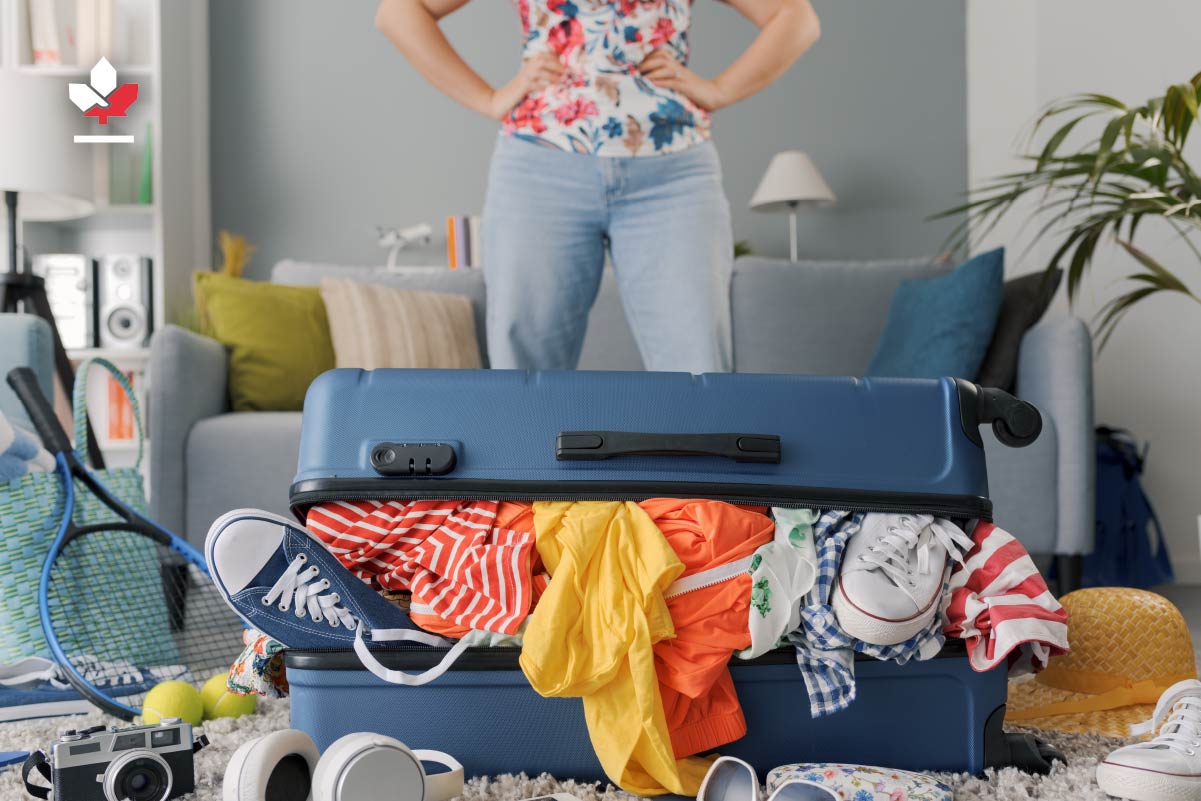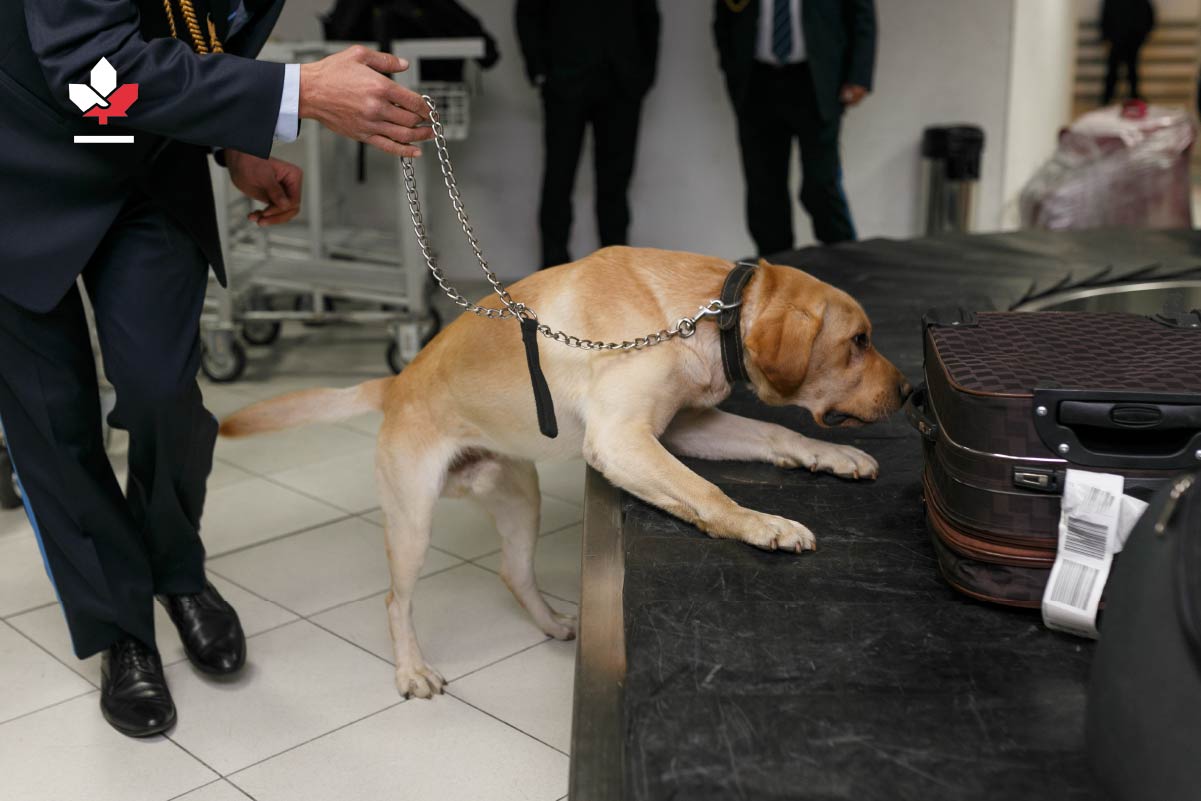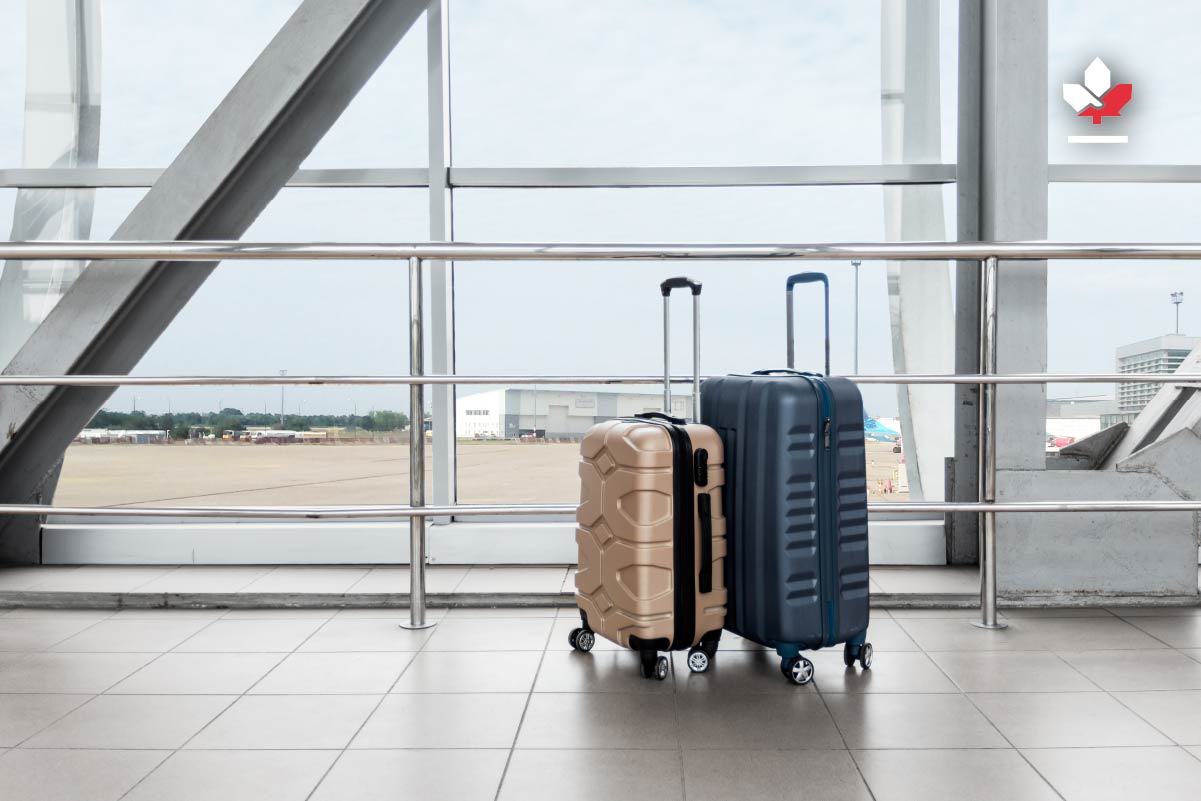Your Packing List for Canada: What Not to Bring
September 10, 2024
|
Preparing for a trip overseas involves more than just picking out your wardrobe and required documents, including if you plan to move to Canada. Knowledge of the essential packing list for Canada and what not to bring is equally crucial. Canada's diverse climate and strict regulations mean certain items can be prohibited. To ensure a smooth and enjoyable journey, it is essential to avoid packing common but problematic items.
Planning to move to Canada? Then, look at which items to leave behind in your packing list for Canada to ensure a hassle-free travel experience tailored to your purpose of visit.
What Not to Pack When Traveling to Canada?

When preparing for your trip to Canada, it is just as important to know what not to bring as it is to know what to pack. Depending on the purpose of your visit to Canada, there are specific items you should leave behind. Let us break it down based on different travel scenarios.
If You Are Moving to Canada
You must leave behind any items that might raise eyebrows at customs. This includes excessive cash; while you need Canadian dollars, bringing large amounts can lead to unnecessary questions. Certain weapons, drugs, and plant or animal products are also prohibited. Below is a summary of what not to pack when moving to Canada.
| Item | Reason |
|---|---|
| Excess Furniture | Canada has many furniture stores where you can purchase items upon arrival. |
| Large Appliances | Bringing large appliances can be expensive and inconvenient. |
| Outdated Technology | Consider purchasing newer technology in Canada to take advantage of local warranties and support. |
| Irrelevant Documents | Only bring essential documents, such as passports, visas, and medical records. |
If You Are Visiting Canada
You will want to pack bright and light for a vacation in Canada. Do not pack excessive toiletries like large bottles of shampoo or soap. These are readily available in Canada and take up valuable luggage space. Here is a summary of what not to pack when visiting Canada.
| Item | Reason to Avoid |
|---|---|
| Excessive Souvenirs | Purchase souvenirs and ship them home or carry them in a separate bag. |
| Unnecessary Electronics | Consider the necessity of bringing certain electronics. |
| Bulky Luggage | Packing light can make your trip more enjoyable. |
If You Are Taking a Working Holiday in Canada
While mostly a vacation in Canada, a Working Holiday Visa still requires appropriate work attire. Leave behind any unnecessary formal wear unless your job specifically requires it. Remember to bring important documents like your passport, Electronic Travel Authorization (eTA), and proof of insurance. Below is a summary of what not to pack for your working holiday in Canada.
| Item | Reason to Avoid |
|---|---|
| Excess Clothing | Pack versatile clothing for work and leisure. |
| Bulky Camping Equipment | Rent equipment locally if needed. |
| Unnecessary personal items | Focus on packing essentials. |
If You Are Planning to Study in Canada
Students coming to Canada should focus on packing essentials and leaving behind items that can be easily purchased upon arrival. Do not bring bulky textbooks or excessive school supplies. Below is a summary of what not to pack if you study in Canada.
| Item | Reason to Avoid |
|---|---|
| Textbooks | Universities often have libraries or bookstores. |
| Excessive Stationery | Campus stores sell essential supplies. |
| Large Amounts of Food | Food and snacks can be purchased locally. |
If You Are Bringing Your Family to Canada
Avoid overpacking toys and entertainment items when bringing your family to Canada. If you are traveling with infants, do not bring excessive baby supplies. Diapers, wipes, and baby food are readily available in Canada. Here is a summary of what not to pack if you bring your family to Canada.
| Item | Reason to Avoid |
|---|---|
| Excess Toys And Games | Children can be entertained with a limited number of toys. |
| Fragile Items | Avoid breakage during travel. |
| Excessive Clothing for Young Children | Children grow quickly, and clothing can be purchased locally. |
If You Are Going to Work in Canada
Packing smart is crucial if you are relocating to work in Canada. Only bring large household items or furniture if necessary. Focus on packing essential documents related to your Canadian work permit and professional certifications. Below is a summary of what not to pack if you are going to work in Canada.
| Item | Reason to Avoid |
|---|---|
| Bulky Clothing | Canada has a wide range of temperatures, and layers are more practical than bulky clothing. |
| Expensive Jewelry | Avoid drawing unnecessary attention to valuables |
| Perishable Food Items | Canada has a variety of grocery stores and restaurants. |
| Large Appliances | Appliances can be purchased locally at a more affordable price. |
If You Want to Start a Business in Canada
You should bring appropriate business materials or equipment when moving to Canada. Most of what you need to start your business can be acquired in Canada. Instead, focus on bringing essential documents related to your business plan, relevant licenses, and proof of funds. Here is a summary of what not to pack if you want to start a business in Canada.
| Item | Reason to Avoid |
|---|---|
| Excessive Business Supplies | Many items can be purchased locally. |
| Obsolete Technology | Ensure compatibility with Canadian standards. |
| Large Quantities of cash | Carry credit cards or traveler's checks instead. |
Which Items Are Restricted When Traveling to Canada?

When packing for your trip to Canada, knowing what items are restricted or prohibited is crucial. Here is a breakdown of some essential items you should leave behind.
Firearms and Weapons
Canada has strict laws regarding firearms and weapons. You must not bring any guns or weapons into the country. This includes:
- Handguns,
- Rifles and shotguns,
- Ammunition,
- Pepper spray or mace,
- Switchblades or butterfly knives, and
- Brass knuckles.
If you plan to bring hunting equipment or firearms for sporting purposes, you must obtain the necessary permits and declare them at the border. It is best to check with the Canadian Border Services Agency before your trip for specific requirements.
Certain Food Products
While you might be tempted to bring some of your favorite snacks or ingredients, many food products are prohibited in Canada. This is to protect Canadian agriculture and prevent the spread of diseases. Some items you can not bring include:
- Fresh fruits and vegetables,
- Plants and seeds,
- Meat products (including jerky),
- Dairy products, and
- Eggs and egg products.
Illegal Substances
Illegal drugs are strictly prohibited in Canada. This includes narcotics like:
- Cocaine,
- Heroin,
- Methamphetamine,
- Unauthorized prescription drugs, and
- Drug paraphernalia.
It is important to note that while cannabis is legal in Canada, it is illegal to bring it across the border, even if you are coming from a place where it is legal. This applies to all forms of cannabis, including edibles and oils.
What Should I Do if I Lose My Luggage in Canada?

First, report the loss immediately to your airline's baggage claim office at the airport. They will provide you with a file reference number, which you will need to use to track your luggage. Make sure to give them your contact information in Canada, including your hotel address or where you will stay.
While waiting for your luggage, you might need to purchase some essentials. Keep all receipts for these purchases, as you can claim reimbursement from your airline or travel insurance. Here is a quick list of items you might need to buy:
- Toiletries: Toothbrush, toothpaste, deodorant, and any personal hygiene items you need immediately.
- Clothing: Depending on how long you expect to be without your luggage, you should bring a change of underwear, socks, and perhaps a shirt or two.
- Medications: If you packed any essential medications in your lost luggage, consult a local pharmacy or doctor for replacements.
Remember to check your travel insurance policy. Many policies cover lost luggage and will reimburse you for necessary purchases. Keep all documentation related to your lost luggage claim, including the airline's report and any receipts for items you had to buy.
If your luggage is not found within 24 hours, follow up with the airline. Most airlines have online tracking systems where you can check the status of your lost luggage claim using the file reference number they provided. Lastly, to prevent future luggage loss, consider:
- Using distinctive luggage tags with your contact information,
- Taking a photo of your luggage before check-in for easy identification,
- Packing essential items and changing clothes in your carry-on bag, and
- Using luggage tracking devices for added peace of mind.
Now that you have a clearer insight into what not to bring to Canada during your trip, you can begin your journey to the Great White North with the assistance of a Regulated Canadian Immigration Consultant (RCIC).
FAQs
Can I Bring My Pet to Canada?
Yes, you can bring your pet to Canada, but there are specific regulations you must follow, including vaccination requirements and health certificates. Check the latest guidelines from the Canadian Food Inspection Agency before traveling.
Are There Any Restrictions on Bringing Prescription Medications to Canada?
Yes, there are restrictions on bringing prescription medications into Canada. You should carry only the amount needed for personal use and keep medicines in their original packaging with clear labels. Further documentation or approval may be required for quantities exceeding a 90-day supply or specific controlled substances.
Is There a Limit on The Amount of Cash I Can Bring to Canada?
Yes, you must declare if you bring 10,000 CAD or more in cash or equivalent currency into Canada. Failure to declare this amount can lead to penalties or confiscation of the funds. Always ensure to report large sums to avoid legal complications.
